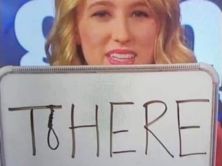
PBS cut ties with news personality Tavis Smiley last year, and now Smiley is suing the network for breach of contract, intentional interference with contract, and tortious interference. In December, PBS announced it was suspending Smiley’s program after receiving a complaint about Smiley. PBS said it hired a law firm, which investigated and found “a pattern of multiple relationships with subordinates over many years.
iMediaEthics obtained a copy of Smiley’s lawsuit. The lawsuit claims “over the years, PBS has acted in a racially hostile manner,” alleging that “PBS harassed Mr. Smiley about inviting controversial African American figures on to his show” but not with “white figures.” The lawsuit also says that PBS only “provided less than 20% of the funds for [Smiley’s program’s] annual budget,” which resulted in an “almost always tense” relationship.
Smiley’s lawsuit calls the investigation into Smiley “poorly executed and incomplete” as well as “trumped-up,” “in violation of the implied covenant of good faith and fair dealing,” “biased and littered with poor planning and analysis,” and without “minimal due process.” The lawsuit maintains that PBS wouldn’t tell Smiley details of the accusations against him, including who his accusers are. Further, because of PBS dropping Smiley’s program, Smiley’s lawsuit says his company had to lay off 20 employees.
In an interview with the Washington Post’s Paul Farhi, who broke the news of the lawsuit, Smiley said “filing a lawsuit against PBS was the last thing I wanted to do,” adding that “But litigation seems to be the only way to get at the truth.”
A PBS spokesperson provided iMediaEthics with PBS’s statement on Smiley’s lawsuit.
“Today’s meritless lawsuit is yet another example of Tavis Smiley’s attempts to distract the public from his pattern of sexual misconduct in the workplace.
“As PBS has consistently stated, following receipt of a complaint alleging inappropriate conduct by Mr. Smiley, PBS hired an independent law firm to conduct an investigation. The ongoing investigation, which included a lengthy interview with Mr. Smiley, revealed that he had multiple sexual encounters with subordinates over many years and yielded credible allegations of additional misconduct inconsistent with the values and standards of PBS. That is what led PBS to the decision to indefinitely suspend distribution of Mr. Smiley’s program.
The notion that PBS’ decision to suspend distribution of the program was made for any reason aside from Mr. Smiley’s own behavior is ridiculous and false.”
After PBS suspended and cut ties with Smiley, Smiley pushed back quickly, noting that his show is produced by his own company and his company’s employee handbook doesn’t “forbid” employee relationships. In an interview with Good Morning America, Smiley called PBS’s decision a “huge mistake” and said he hadn’t heard details about the accusations against him and that PBS didn’t contact his human resources team or any current staff.






